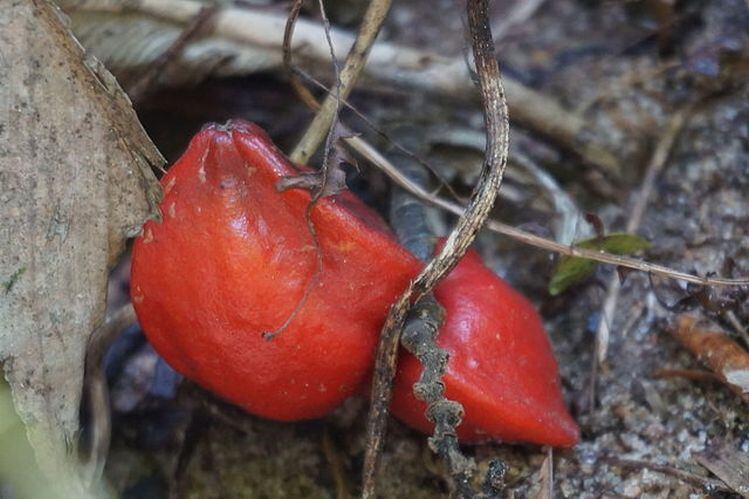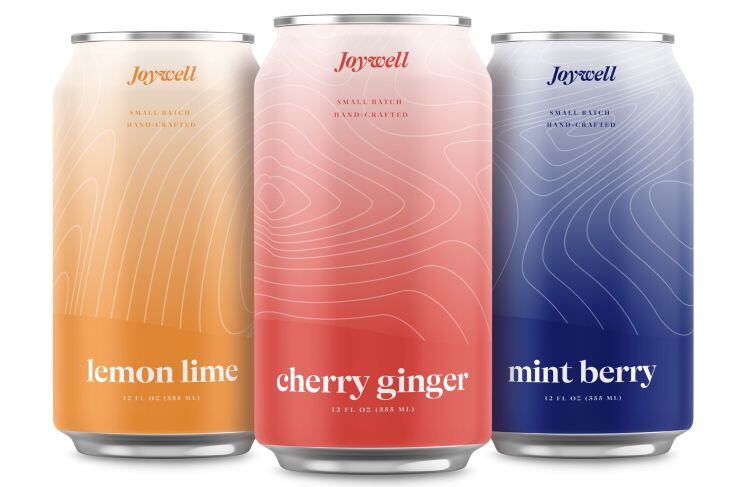The Davis, California-based company – which told this publication earlier this month that it aims to launch its first CPG products in the fall – did not provide further details about its plans or which sweet proteins its beverages would contain, but said in a press release that Joywell had “scaled its sweet protein platform across multiple proteins, developing consumer products and gearing up for launch.”
While stevia and monk fruit sweeteners have improved significantly as firms have homed in on the more sugar-like steviol glycosides such as Reb M, sweet proteins add an exciting new dimension to the sugar-reduction toolbox, claimed CEO Ali Wing, who said Joywell is “now entering a commercialization phase."
“This doesn’t mean we don't still work with a few strategic partners on the CPG side," she stressed, "and my guess is over time, we'll work with more of them. But right now, we're very focused on launching our own consumer products,” said Wing.
Is it commercially viable to produce sweet proteins using microbial fermentation?
As for the commercial viability of producing sweet proteins via microbial fermentation – something Germany’s Nomad Bioscience (which expresses thaumatin II in transgenic plants instead and expects to be on the market by 2024) has argued in regulatory filings is not scalable or cost competitive – Wing told us:
“I wouldn't have joined the company to be a commercial leader if I didn't think we had a commercially viable strategy around costs of production, and we do believe we have a very clear path to cost competitiveness with sugar.”
Sugary taste profile without trade-offs?
But what’s exciting about sweet proteins in the first place?
They are all different, said Wing, with some a few hundred times sweeter than sugar (brazzein) and others (thaumatin) a couple of thousand times sweeter, but in general they’re exciting because they don’t come with the trade-offs that you get with most commercially-available high intensity sweeteners.
“Taste is the number one attraction, but a protein-based solution [for sweetness] is also attractive as it doesn’t trigger blood sugar [although suppliers of stevia and monk fruit say there’s no evidence that these sweeteners do either] or interact negatively with the gut microbiome; our bodies are very good at digesting and managing protein.”
Consumer-friendly labeling?
Another plus point is that while Joywell’s proteins are not extracted from fruits (they are manufactured by a strain of pichia yeast in fermentation tanks) they are bioidentical to the proteins found in fruits, so could likely be labeled as ‘katemfe fruit protein’ (thaumatin), ‘oubli fruit protein’ (brazzein), ‘serendipity berry protein’ (monellin) or ‘miracle berry protein’ (miraculin), she claimed.
“There are plenty of opportunities around flavors [for example in some formulations thaumatin might be labeled as ‘natural flavor’], but we're currently pursuing them as sweetener ingredients.
“Until I have final products through the process, I can’t confirm it [final labeling] for every product, but every indication is that for, say, thaumatin, the expectation of how it’s labeled is ‘katemfe fruit protein'."
According to Wing, who is not commenting on the GRAS status of Joywell's sweeteners: “We have multiple drinks platforms in development and multiple proteins going through the regulatory process, so we're not sharing this yet.”
She added: “We're excited about using multiple sweet proteins together, as there are differences between them in things like solubility and heat stability and taste profiles, so thaumatin has a really nice upfront sweetness, for example, while brazzein is really soluble. The one that’s quite different is miraculin, which is a taste modifier [rather than something that itself imparts sweetness], and it's a different beast, if you will.”
Icon Foods: 'Very pronounced lingering effect'
Specialty sweetener co Icon Foods recently introduced a product called ThauSweet, which combines thaumatin (extracted from katemfe fruit) and zero-calorie sweetener erythritol. Here, thaumatin serves as flavor/sweetness modulator rather than a sweetener per se, said CEO Thom King.
Right now, supplies of thaumatin (which he says has a "very pronounced lingering effect") are limited and expensive, added King, noting that katemfe fruit "mostly grows in conflict areas so, the supply chain can be hit or miss."
He added: "The testing method for thaumatin is also complicated since it is a protein-based sweetener, so even sending it out for testing costs an arm and a leg."
Firms producing it via microbial fermentation could stabilize the thaumatin supply chain and bring prices down, said King, although firms looking to buy would need clarity as regards to its GRAS status, he said.
In the EU, thaumatin is approved as a sweetener and as a flavor enhancer, while in the US, it is FEMA GRAS as a flavoring agent (3732).
In 2020, the FDA said it had no objections to GRAS determinations (GRN 920 and GRN 910) from Nomad Bioscience for the production of thaumatin II made from transgenic plants to serve as a flavor modifier and a sweetener.
Joywell has not confirmed whether its sweet proteins - produced via microbial fermentation - are yet self-affirmed GRAS and whether it intends to notify the FDA of its determinations in order to secure 'no objections' letters.
* The round was led by Piva Capital, with participation from B37 Ventures and Global Brain Corporation as well as existing investors Khosla Ventures, Evolv Ventures, SOSV's IndieBio and Alumni Ventures.

Sweet proteins include:
- Thaumatin I and II: from katemfe fruit, found in West Africa, 2,000-3,000x sweeter than sucrose, readily soluble in cold water
- Brazzein: from oubli fruit, found in West Africa, 500-2,000x sweeter than sucrose, heat-stable, stable in a wide range of pH conditions, and highly soluble
- Pentadin: also from oubli fruit, 500x sweeter than sucrose
- Curculin: from fruit of Curculingo latifolia found in West Africa, exhibits sweet-tasting and taste-modifying properties
- Mabinlin: from seeds of Chinese plant Mabinlang (Capparis masaikai Levl.)
- Monellin: from serendipity berries, found in West Africa
- Lysosome: from egg whites
- Miraculin: from miracle fruit, found in West Africa. It is not sweet in and of itself, but binds to sweet receptors to cause sour-tasting acidic foods such as citrus fruits to be perceived as sweet
The GMO factor: If sweet proteins produced via fermentation do not contain residual levels of genetically engineered microbes, they will not be subject to bioengineered food labeling in the US, although they will likely not meet the criteria for Non GMO Project certification as they are derived from genetically engineered microorganisms and might be considered a 'derivative' of synthetic biology.




